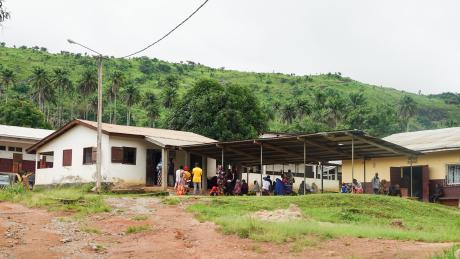
MAF flights support a missionary medical specialist, who for 30 years has worked in the treatment of leprosy and reintegration of leprosy patients in Macenta, Guinea.
Story by Joel Conte
After more than 20 years suffering from leprosy, five widowed women have reached a lifechanging milestone. Free from symptoms and having completed their time of treatment and observation, the women have been declared cured—although not without some loss of sensation.
“This disease has really ruined my life on all levels,” said Yomba Jacqueline, a mother of five children.
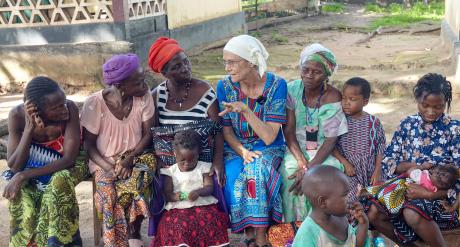
“Life is very difficult in the village. We don’t have any care, nor the means to pay for it – and knowing that I am suffering from leprosy, I had no hope.
“Relatives, friends – everyone was distancing themselves from me because of my condition. I lost my husband,” said Yomba, who like the other women lives in social housing provided by the state for health rehabilitation and social reintegration.
“But I thank God for the local doctors and missionaries who are there every day at my side for medical and emotional follow-up,” added Yomba.
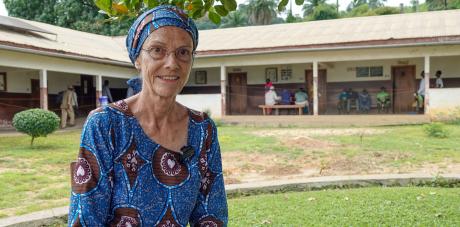
“MAF is really a blessing for us in facilitating our travel from the capital to Macenta. With the state of the road, it’s really exhausting to make this long journey along the bad road with the likelihood of insecurity.
“We can arrive comfortably in less than 2 hours and begin planning our activities immediately,” Martha said. Her mission uses MAF for missionary travel and the transport of personal items, avoiding a rough road journey of more than 9 hours.
“We still need MAF. We pray to God that MAF continues to serve here in Guinea,” she added.
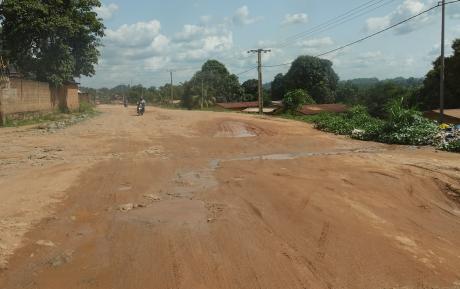
The Centre Hospitalier Régional Spécialisé (CHRS) is in the heart of the prefecture of Macenta in the highlands of Guinea, more than 800 km from the capital, Conakry.
Martha spoke of her motivation to help those who suffer from leprosy.
“The care of leprosy patients was always my heart’s desire, I liked it very much,” she said. “I began to love these patients and the former patients with the after-effects of leprosy, who came at any time because of their wounds on their hands and feet.”
Leprosy is a very common disease in rural areas of Guinea which threatens all age groups.
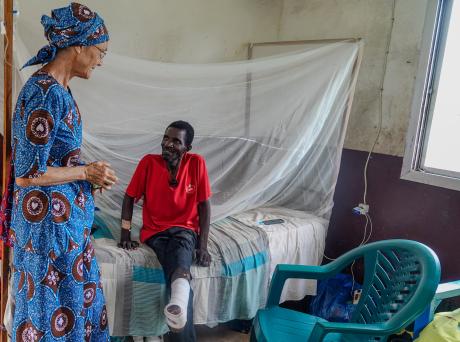
Originally from Faranah, Facely Fofana is being treated at CHRS. He used to be a mine worker, but now he is a shoemaker, given his health situation.
“I saw spots on my feet, but I hadn’t taken it into consideration at all. I went to the hospital. After several examinations the doctors told me that I suffer from leprosy,” he said.
“I was very devastated, worried and I wondered if I would recover. I had no one – and financially I had nothing. I tried the traditional treatment option, but it didn't work.
“The doctors told me that I could be treated and taken care of at CHRS. I didn’t even have the transport to come, it was my friends and neighbours who contributed money so that I could come to the hospital,” said Facely.
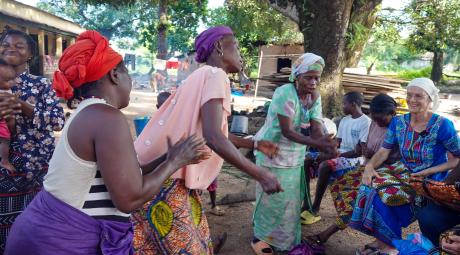
Martha describes the challenge that Guineans with leprosy face when seeking diagnosis and healing.
“After consulting several marabouts (local holy men) and traditional healers in the villages, and without knowing what disease they suffer from, people could not find a solution,” she said.
“It can be very difficult for them, as leprosy begins to destroy the peripheral nerves. If the nerves are destroyed, the person does not sense pain or injury.”
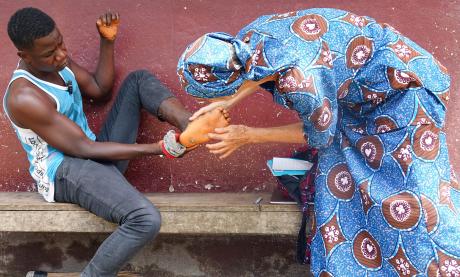
Separated from his family and his dreams of study, 23-year-old Norbert Loua, suffers from leprosy. He has been hospitalised for over 8 years and is cared for by the centre.
“I am here alone. Neither family nor friends visit me – only the doctors who provide my care,” said Norbert. “This disease made me drop out of school. The conditions in which I came here were painful. Cutting me off from the outside world, this disease has changed my lifestyle—everything.
“Emotionally, it's not easy at all to live with it, but today I thank God,” said Norbert. “The treatment is going well. Thanks to God I can walk today, something I couldn't do before.”